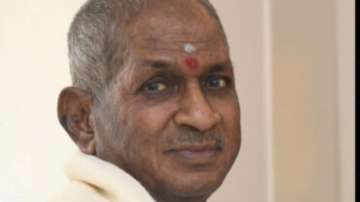Ilaiyaraaja nominated to Rajya Sabha: How a Dalit facing discrimination scripted India's music history
Ilaiyaraaja started his musical journey at the age of 14 and went on to become the maestro of Indian music. He could compose the soundtrack of a whole film in half a day.

Ilaiyaraaja has been nomintaed to Rajya Sabha. As the news came in, fans of the iconic music composer took to social media to congratulate him. India's Prime Minister Narendra Modi also congratulated Ilaiyaraaja on the occasion. The veteran music director has composed over 8,500 songs that have featured in close to 1,500 films across nine languages and performed over 20,000 concerts in his career spanning over five decades.
He is a recipient of five National Film Awards—three for Best Music Direction and two for Best Background Score. In 2010, he was awarded the Padma Bhushan, the third-highest civilian honour in India and the Padma Vibhushan in 2018, the second-highest civilian award by the government of India. As Ilaiyaraaja is nominated for a seat in Rajya Sabha, we take a look back at his illustrious career and how he beat all odds to become India's most acclaimed music artist.
Born in Kambam in Theni, Madras Presidency In Southern Tamil Nadu in 1943, Ilaiyaraaja is regarded as one of India’s greatest music composers. During his career, he had to face innumerable hardships and caste-based discrimination. However, he overcame all such hurdles and emerged as one of the country’s leading musicians. Ilaiyaraaja migrated to the city of Madras, the Southern Movie Capital, when he was 25 years old, looking for a break into music making for the public. He studied under Dhanraj Master, playing the guitar and piano in the Western style.
His career has spanned more than five decades. His life is a living manifestation of how creative geniuses can rise overcoming all hardships. Not just in India, Ilaiyaraaja is considered among the best in the music industry globally. He is credited with introducing Western musical sensibilities into South Indian mainstream music. He also trained in guitar and became famous for playing it. He is a gold medalist in classical guitar after completing the course through a distance learning channel from Trinity College of Music, London.
In 1976, Ilaiyaraaja was hired to compose songs for Tamil film Annakkili. The film dealt with a village story, to which Ilaiyaraaja composed great melodies. The songs offered simplicity and musicality typical of Tamil folk in an authentic way, and they offered new sounds–rich orchestration typical of Western music. The songs became an instant hit, the most popular being “Machchana Partheengala” sung by a female voice, S. Janaki.
He soon proved his abilities in other styles as well. His classical Karnatic melodies were used in Kannan Oru Kai Kuzhandhai (1978) (Rag Mohanam), Mayile Mayile (Ragam Hamsadhwani), and Chinna Kannan Azhaikiran (Reethi Gowlai). Raaja’s grasp of Western classical structure became evident with his masterful use of the piano, guitar, and string ensembles.
Some of the numbers that show his orchestral genius are “Pon malai Pozhudu” and “Poongadhave” from Nizhalgal (1980), Kanmaniye Kadhal from AarilirindhuAruvathuVarai (1979), “Ramanin Mohanam” from NetriKann (1981), “En Iniya Pon nilave from Moodupani (1980), “Paruvame Pudhiya” from NenjathaiKillathe (1981), and “Edho Moham” from KozhiKoovuthu (1982). These songs could literally be heard coming from every doorstep in Tamil Nadu state every day for at least a year after being released. He composed film music prolifically for the next fifteen years, at a rate of as many as three new songs a day.
Ilaiyaraaja also recorded non-film albums, such as “How to Name It” and “Nothing But Wind,” which were well-received in India and abroad. He organised a full symphony performed by the Royal Philharmonic Orchestra in London and thus became the first Indian to compose a full symphony. He is also the first Asian to compose a full symphony performed by the Royal Philharmonic Orchestra.
He composed a variety of non-film music, including religious and devotional songs, an oratorio, and world music. He is usually referred to by the title Isaignani (Musical Genius), or as The Maestro.